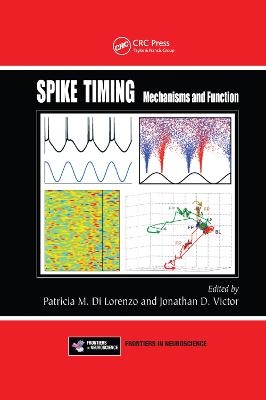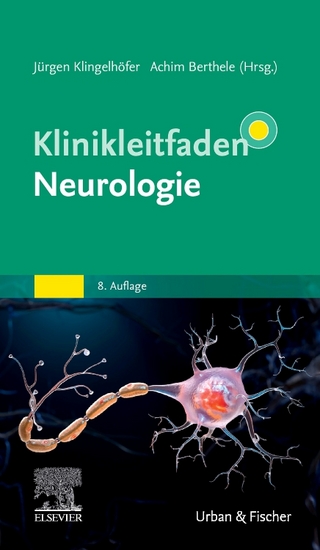
Spike Timing
CRC Press (Verlag)
978-0-367-38010-6 (ISBN)
Spike Timing: Mechanisms and Function examines the function of spike timing in sensory, motor, and integrative processes, providing readers with a broad perspective on how spike timing is produced and used by the nervous system. It brings together the work and ideas of leaders in the field to address current thinking as well as future possibilities.
The first section of the book describes the foundation for quantitative analysis and theory. It examines the information contained in spike timing, how it can be quantified, and how neural systems can extract it. The second section explores how input-output relationships are reflected in spike timing across a range of sensory systems.
Drawing together multiple perspectives, including theoretical and computational studies as well as experimental studies in a range of model systems, the book provides a firm background for investigators to consider spike timing as it applies to their own work. It also offers a glimpse of future advances related to mechanisms of spike timing and its role in neural function, such as the development of novel computational technologies.
Patricia M. Di Lorenzo is Professor and Director of the Undergraduate Program in Psychobiology at Binghamton University, New York. Jonathan D. Victor is Fred Plum Professor of Neurology at Weill Medical College of Cornell University, New York.
Introduction. SPIKE TIMING - TOOLS AND MODELS. Spike Trains as Event Sequences: Fundamental Implications. Neural Coding and Decoding with Spike Times. Can We Predict Every Spike? Statistical Identification of Synchronous Spiking. Binless Estimation of Mutual Information in Metric Spaces. Measuring Information in Spike Trains about Intrinsic Brain Signals. The Role of Oscillation-Enhanced Neural Precision in Information Transmission between Brain Areas. SPIKE TIMING - CODING, DECODING AND SENSATION. Timing Information in Insect Mechanosensory Systems. Neural Encoding of Dynamic Inputs by Spike Timing. Relating Spike Times to Perception – Auditory Detection and Discrimination. Spike Timing and Neural Codes for Odors. Spike Timing as a Mechanism for Taste Coding in the Brainstem. Increases In Spike Timing Precision Improves Gustatory Discrimination Upon Learning. Spike Timing in Early Stages of Visual Processing. Cortical Computations Using Relative Spike Timing.
| Erscheinungsdatum | 30.09.2019 |
|---|---|
| Verlagsort | London |
| Sprache | englisch |
| Maße | 156 x 234 mm |
| Gewicht | 821 g |
| Themenwelt | Medizin / Pharmazie ► Medizinische Fachgebiete ► Neurologie |
| Naturwissenschaften ► Biologie ► Humanbiologie | |
| Naturwissenschaften ► Biologie ► Zoologie | |
| Naturwissenschaften ► Physik / Astronomie ► Angewandte Physik | |
| ISBN-10 | 0-367-38010-2 / 0367380102 |
| ISBN-13 | 978-0-367-38010-6 / 9780367380106 |
| Zustand | Neuware |
| Haben Sie eine Frage zum Produkt? |
aus dem Bereich


